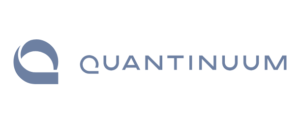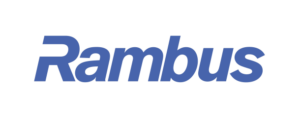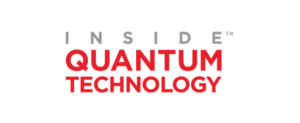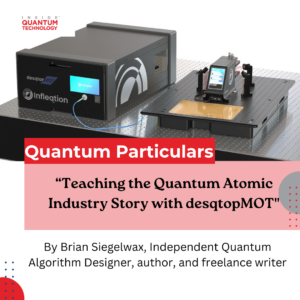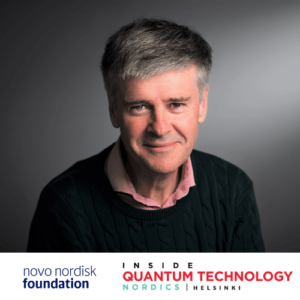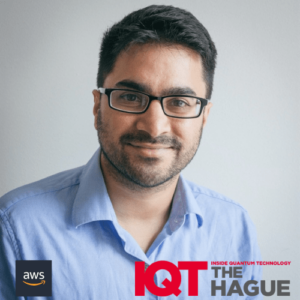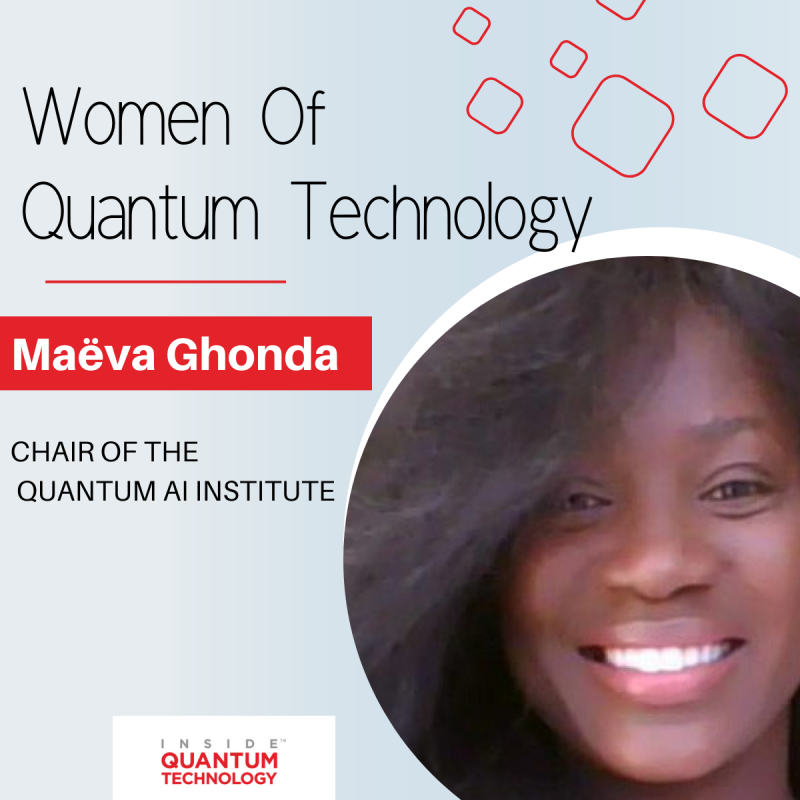
Like many women within the quantum ecosystem, Maëva Ghonda, the Chair of the Quantum AI Institute, found a natural draw to quantum technology during her early studies. “My passion for quantum increased while working as a Scholar for the Joint Quantum Institute (JQI), the world-class government institution where scientists are trained for future opportunities to provide U.S. industry with cutting-edge results,” she explained. “It is a powerful organization supported by the National Institute of Standards and Technology (NIST), a vital federal government agency within the U.S. Department of Commerce.” NIST is a crucial quantum computing organization within the U.S., as it standardizes many of the quantum cryptography algorithms to boost American cybersecurity.
As someone interested in cybersecurity, Ghonda found JQI to be a fitting place to pursue her passions. “I was researching quantum technologies daily; consequently, it quickly became obvious that quantum will become a transformational enabler with the potential to disrupt many industries,” Ghonda added.
Now, as the Chair of the Quantum AI Institute, Ghonda utilizes her passion to look ahead at the future of quantum technology. “A key part of my role has been advising leaders in both the public and private sectors on quantum cybersecurity,” she elaborated. “Because of my experience in Cybersecurity Risk Management and Governance, I have been invited to share my perspectives on the Quantum Threat with leaders at leading organizations, including the United States Defense Intelligence Agency (DIA), which is the Nation’s premier military intelligence agency within the U.S. Department of Defense (DoD). The team at DIA is deployed globally and provides combat support and military intelligence to U.S. policymakers, warfighters, and force planners.”
The U.S.’s defense branches are not the only places Ghonda has advised others on cybersecurity. “I also work with legal and technical experts across sectors to create space in the law to regulate AI and Quantum effectively,” she added. “For instance, on the IEEE AI Policy Committee, my fellow committee members and I develop policy recommendations for the U.S. Federal Government.” Beyond cybersecurity, Ghonda advises public and private groups on corporate strategy, risk management, and sustainability through her work at the Quantum AI Institute.
As a female leader in the quantum industry and a leader within her organization, Ghonda works to encourage more diversity and inclusivity within this space. “The harsh reality is that when we study the short-term and long-term projections for the population, we are glaring at an ever-diversifying U.S. workforce,” Ghonda stated. “The industry will continue to experience challenges vis-à-vis talent if diversity is not embedded as a standard in strategic workforce planning and recruitment. Leaders that prioritize diversity in talent management and planning now will be better positioned to adapt to the dynamics of the new, emerging U.S. workforce.” To promote more diversity and inclusivity, Ghonda suggested implementing various programs within the workforce. “For instance, time-bound programs with clearly stated objectives via public-private partnerships could work well to promote such an important initiative,” she added. “Ensuring successful outcomes for these types of programs would require a deep commitment from executives and allocation of sufficient resources (e.g., a budget).”
Ghonda is no stranger to leading diverse initiatives within the technology sector. “Advancing diversity and inclusion in quantum was a primary aim when I launched my Quantum Computing Certificate Education Program for Workforce Development, which I had licensed to IEEE,” she said. “It has been a phenomenal success because the courses have been accessible. Since this program’s courses have always been affordable, learners worldwide have earned numerous certificates via LIVE and on-demand sessions.” Using her experience, Ghonda hopes to inspire others to realize that inclusivity within the quantum industry can achieve many goals. “Importantly, given the anticipated shift in the nation’s workforce, a diverse and inclusive quantum industry will contribute favorably to the nation’s competitiveness, innovation and growth,” she said.
Kenna Hughes-Castleberry is a staff writer at Inside Quantum Technology and the Science Communicator at JILA (a partnership between the University of Colorado Boulder and NIST). Her writing beats include deep tech, quantum computing, and AI. Her work has been featured in Scientific American, New Scientist, Discover Magazine, Ars Technica, and more.
- SEO Powered Content & PR Distribution. Get Amplified Today.
- PlatoData.Network Vertical Generative Ai. Empower Yourself. Access Here.
- PlatoAiStream. Web3 Intelligence. Knowledge Amplified. Access Here.
- PlatoESG. Automotive / EVs, Carbon, CleanTech, Energy, Environment, Solar, Waste Management. Access Here.
- PlatoHealth. Biotech and Clinical Trials Intelligence. Access Here.
- ChartPrime. Elevate your Trading Game with ChartPrime. Access Here.
- BlockOffsets. Modernizing Environmental Offset Ownership. Access Here.
- Source: https://www.insidequantumtechnology.com/news-archive/women-of-quantum-technology-maeva-ghonda-of-the-quantum-ai-institute/
- :has
- :is
- :not
- :where
- 13
- 2023
- a
- About
- accessible
- Achieve
- across
- adapt
- added
- advising
- affordable
- agency
- ahead
- AI
- aim
- allocation
- also
- always
- American
- an
- and
- Anticipated
- ARE
- AS
- At
- BE
- became
- because
- become
- been
- Better
- between
- Beyond
- boost
- both
- branches
- budget
- by
- CAN
- certificate
- certificates
- Chair
- challenges
- clearly
- Colorado
- combat
- Commerce
- commitment
- committee
- competitiveness
- computing
- Consequently
- continue
- contribute
- Corporate
- could
- courses
- create
- crucial
- cryptography
- cutting-edge
- Cybersecurity
- daily
- deep
- deep tech
- Defense
- Department
- department of defense
- deployed
- develop
- Development
- dia
- discover
- Disrupt
- diverse
- Diversity
- Diversity and inclusion
- draw
- during
- dynamics
- e
- Early
- earned
- ecosystem
- Education
- effectively
- elaborated
- embedded
- emerging
- enabler
- encourage
- Ether (ETH)
- executives
- experience
- experts
- explained
- featured
- Federal
- Federal government
- fellow
- female
- fitting
- For
- Force
- found
- from
- future
- given
- Globally
- Goals
- governance
- Government
- Group’s
- Growth
- had
- Have
- her
- High
- hopes
- HTTPS
- i
- IEEE
- if
- image
- implementing
- important
- in
- include
- Including
- inclusion
- Inclusive
- Inclusivity
- increased
- industries
- industry
- Initiative
- initiatives
- Innovation
- inside
- Inside Quantum Technology
- inspire
- instance
- Institute
- Institution
- Intelligence
- interested
- invited
- IT
- joint
- Key
- launched
- Law
- leader
- leaders
- leading
- Legal
- Licensed
- live
- long-term
- Look
- magazine
- management
- many
- max-width
- Members
- Military
- more
- my
- National
- Nations
- Natural
- New
- nist
- no
- now
- numerous
- objectives
- obvious
- of
- on
- On-Demand
- only
- opportunities
- organization
- organizations
- Others
- outcomes
- part
- Partnership
- partnerships
- passion
- perspectives
- phenomenal
- Place
- Places
- planning
- plato
- Plato Data Intelligence
- PlatoData
- policy
- policymakers
- population
- positioned
- posted
- potential
- powerful
- premier
- primary
- Prioritize
- private
- Program
- Programs
- projections
- promote
- provide
- provides
- public
- pursue
- Quantum
- Quantum AI
- quantum computing
- quantum technology
- quickly
- Reality
- realize
- recommendations
- recruitment
- Regulate
- require
- Resources
- Results
- Risk
- risk management
- Role
- s
- Said
- Scholar
- Science
- scientific
- Scientist
- scientists
- sector
- Sectors
- sessions
- Share
- she
- shift
- short-term
- since
- Someone
- Space
- Speaks
- Staff
- staff writer
- standard
- standards
- stated
- States
- stranger
- Strategic
- Strategy
- studies
- Study
- success
- successful
- such
- sufficient
- support
- Supported
- Sustainability
- Talent
- team
- tech
- Technical
- Technologies
- Technology
- Technology sector
- that
- The
- The Future
- the joint
- the Law
- These
- this
- threat
- Through
- to
- trained
- transformational
- true
- types
- u.s.
- U.S. Department of Defense
- United
- United States
- university
- using
- utilizes
- various
- via
- vital
- was
- we
- WELL
- when
- which
- while
- will
- with
- within
- Women
- Work
- Workforce
- Workforce Development
- working
- works
- world-class
- worldwide
- would
- writer
- writing
- zephyrnet



